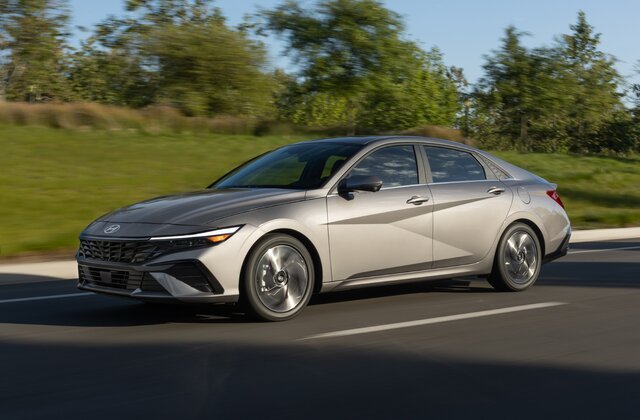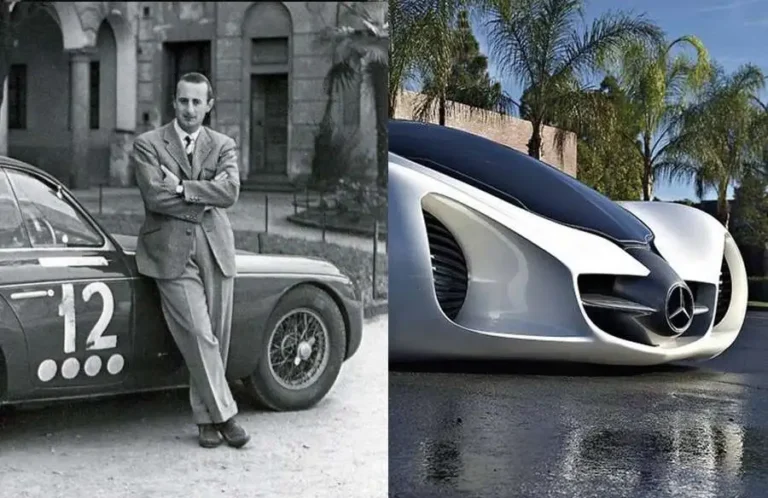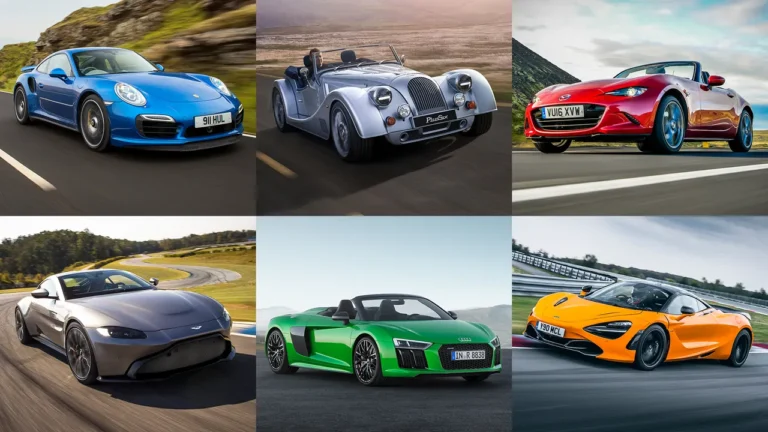7 Must-Have Features for Any Modern Sports Car
Sports cars represent the pinnacle of driving pleasure and automotive engineering. From sleek designs to cutting-edge technology, the modern sports car is a masterpiece of innovation. But what truly separates an average sports car from an extraordinary one? Below are the seven must-have features that define a modern sports car, ensuring it performs at the highest levels while providing an exceptional driving experience.
1. High-Performance Engine
At the heart of every great sports car lies a high-performance engine. This is one of the most critical elements that defines the car’s power, acceleration, and overall capabilities. Modern sports cars come equipped with advanced engine designs, including turbocharging, supercharging, and hybrid powertrains that allow them to deliver extreme horsepower without compromising on efficiency.
The choice of engine configuration—whether a V6, V8, or even a high-powered electric motor—can dramatically affect a sports car’s performance. High-revving engines provide the necessary torque for rapid acceleration, allowing drivers to feel the thrill of speed. Some modern sports cars, like the Porsche 911 or Ford Mustang Shelby GT500, have engines that produce over 500 horsepower, pushing the boundaries of what a street-legal vehicle can achieve.
Moreover, modern sports cars are incorporating electric or hybrid engines, blending traditional power with green technology. The Ferrari SF90 Stradale, for instance, pairs a twin-turbo V8 engine with electric motors to deliver unparalleled performance while also being somewhat environmentally conscious.
2. Aerodynamic Design
Aerodynamics play a vital role in the performance and efficiency of a sports car. A well-designed aerodynamic profile reduces drag and improves downforce, enabling the car to maintain better stability at high speeds. Engineers and designers collaborate to sculpt a car’s body with precision, ensuring that every curve, vent, and spoiler serves a purpose.
The shape of a modern sports car is not just about aesthetics; it’s about performance. Low-slung bodies, streamlined roofs, and aggressive front fascia designs help the car slice through the air, reducing resistance and increasing speed. For example, the McLaren 720S is a prime example of how advanced aerodynamics can be incorporated into a sports car. With active aerodynamic components that adjust based on driving conditions, it optimizes performance and stability at any speed.
Aerodynamics also enhance fuel efficiency by reducing the energy needed to propel the car forward. A car with poor aerodynamics will experience more drag, leading to lower top speeds and decreased fuel efficiency. Active rear spoilers, underbody diffusers, and side vents are common features in modern sports cars to enhance airflow management.
3. Advanced Suspension System
A superior suspension system is crucial for maintaining control and comfort in a high-performance sports car. With the ability to navigate tight corners at high speeds, a car’s suspension must be designed to offer the perfect balance between firmness and flexibility. Modern sports cars come with adjustable suspension systems that allow the driver to switch between various driving modes, from comfort settings for daily driving to sport or track modes for aggressive, high-speed handling.
Sports cars like the Audi R8 and Chevrolet Corvette utilize adaptive suspension technology, which automatically adjusts the damping force based on road conditions and driving style. This ensures a smooth ride on the highway while maintaining tight control during high-speed maneuvers.
Additionally, advanced suspension systems can incorporate features such as anti-roll bars and active damping. These technologies help prevent body roll and improve cornering, ensuring that the car remains stable even when subjected to extreme lateral forces.
4. Precision Steering and Handling
A sports car’s steering and handling capabilities are arguably its most defining characteristics. Precise and responsive steering allows the driver to feel connected to the road, giving them confidence in their ability to navigate curves and maintain control at high speeds. Modern sports cars utilize advanced electronic power steering systems that adjust based on speed, providing lighter steering at lower speeds for city driving and firmer steering at higher speeds for greater control.
One example of a car with impeccable steering is the Mazda MX-5 Miata, renowned for its light and nimble handling. While it might not have the brute force of some larger sports cars, its sharp and responsive steering provides an exhilarating driving experience. On the other hand, high-end sports cars like the Lamborghini Huracán come equipped with all-wheel steering, which enhances stability by slightly turning the rear wheels in the same direction as the front wheels during high-speed maneuvers.
Moreover, many modern sports cars now feature torque vectoring, a technology that improves handling by distributing power between the wheels to maximize traction and minimize understeer or oversteer. This ensures that the car stays on course, even during aggressive driving.
5. Cutting-Edge Infotainment System
While performance is the primary focus of any sports car, comfort and entertainment are also important, especially for longer drives. Modern sports cars come equipped with state-of-the-art infotainment systems that keep drivers and passengers connected and entertained. These systems often feature large touchscreen displays, voice-activated controls, smartphone integration (such as Apple CarPlay and Android Auto), and advanced navigation systems.
The integration of driver-assist technologies, like heads-up displays and customizable digital dashboards, further enhances the driving experience. In a car like the BMW M8, the heads-up display projects vital information—such as speed, navigation instructions, and gear position—onto the windshield, allowing the driver to stay focused on the road without having to glance down at the dashboard.
Furthermore, premium audio systems, often designed in collaboration with top audio brands like Bang & Olufsen or Bose, provide a high-quality sound experience. For the modern sports car driver, having an immersive entertainment system can be just as satisfying as the car’s raw performance capabilities.
6. Advanced Safety Features
Safety is a top priority in any vehicle, and sports cars are no exception. Despite their high-speed capabilities, modern sports cars are equipped with an array of advanced safety features that protect the driver and passengers. These include adaptive cruise control, lane departure warnings, automatic emergency braking, blind-spot monitoring, and even semi-autonomous driving capabilities.
Cars like the Tesla Model S Plaid have pushed the boundaries of safety in sports cars by incorporating advanced driver-assist technologies that use cameras, radar, and ultrasonic sensors to detect potential hazards and avoid collisions. The car’s Autopilot system can even take over driving duties in certain conditions, making it a groundbreaking feature for a sports car.
Many modern sports cars also come with performance-oriented safety features, such as traction control and stability control systems, which help prevent skidding and loss of control during aggressive driving. High-performance brakes, often with carbon-ceramic rotors, provide excellent stopping power to match the car’s speed.
7. Lightweight Materials
Weight is a critical factor in a sports car’s performance. The lighter the car, the faster it can accelerate, the better it handles, and the more efficient it becomes. Modern sports cars are increasingly using lightweight materials like carbon fiber, aluminum, and magnesium to reduce weight without sacrificing structural integrity or safety.
For example, the Alfa Romeo 4C uses a carbon fiber monocoque chassis, which significantly reduces the car’s weight while maintaining exceptional strength. This allows the car to deliver exhilarating acceleration and nimble handling without needing an excessively powerful engine.
Using lightweight materials also helps improve fuel efficiency and reduces emissions, making these cars not only faster but also more environmentally friendly. The use of carbon fiber and other composites is not just limited to the body panels; many components, including wheels, seats, and interior trims, are made from these lightweight materials to optimize performance.
Conclusion
Modern sports cars are a fusion of performance, technology, and design. These seven must-have features—high-performance engines, aerodynamic design, advanced suspension systems, precision steering, cutting-edge infotainment, advanced safety features, and lightweight materials—are what make today’s sports cars truly exceptional. Whether you’re seeking speed, style, or state-of-the-art innovation, these features ensure that a sports car delivers an unparalleled driving experience.







